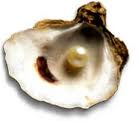 "Take your needle, my child, and work at your pattern; it will come out a rose by and by. Life is like that - one stitch at a time taken patiently and the pattern will come out out all right like the embroidery."
"Take your needle, my child, and work at your pattern; it will come out a rose by and by. Life is like that - one stitch at a time taken patiently and the pattern will come out out all right like the embroidery."~ Oliver Wendall Holmes
One of the nicest aspects of sewing, for me, is the way it frees up my mind to muse while still feeling productive. It’s also a great way to “watch” TV! Cross stitch is one of those sewing crafts I love to do. Recently, a friend asked me how I could sit for hours making little X’s on a blank cloth. “There’s more to it than simply making X’s,” I said. “Why, you can learn a lot of what you need to live well just by reading the common cross stitch directions.”
Here’s my version of life seen through the directions for successful cross stitching:
1. Read all the instructions before beginning. Take time to plan before you start anything – whether you’re considering buying a home, changing your job, or even choosing a new insurance policy, check out the fine print. Know as much as you can before making your decision.
2. Bind or tape the edges to prevent fraying. Make sure your emotional edges are bound by the love and support of your family and friends. Then if life threatens to overcome you, you won’t fall apart. Build up your binding by showing your love for others; at the same time, you can be the tape for theirs as well.
3. Sort and label the thread with the corresponding color and symbol. Just like cross stitch, sometimes our life choices get confused. Sometimes, two choices, like the colors of thread seem to blend into each other, creating the illusion that there is little or no difference. Put aside the colors of your choices until another day when fresh light helps you see the fine shades of each.
4. Find the center of the design. Find your center, your core. Get to know who you really are. Turn off your cell phone, take a walk by yourself, learn to meditate. Most importantly, have some time in solitude and quiet so you can get to know your inner self. The you’ll be able to create something beautiful.
5. When your thread becomes twisted, let your needle hang free and allow the yarn to resume its natural state. When life feels too complicated or your anxiety level threatens to ruin your life tapestry, let the pressures go. Come to a stop and let your mind rest. It won’t solve any problems, but your ability to cope will improve.
6. Cross all stitches in the same way. Be consistent in your outlook. Treat others fairly as you wish to be treated so the pattern of your life will be smooth and even.
7. Count and recount as you go. Review your life on a regular basis.. It’s always easier to change course when you do so. While John Lennon says in a song, “life is what happens when you’re busy making plans,” reviewing your direction as it’s happening offers some ability to adjust your trajectory.
8. Small errors in counting do not change the look of the design and shouldn't be given a second thought. Be kind to yourself and don’t judge yourself or others too harshly. We all make mistakes and small errors will not mar the overall pattern of life.
9. Large errors should be carefully taken out without damaging the thread and then restitched. When you make a large misstep, don’t despair. Consider how the damage can be corrected then fix it as best you can. Handled carefully, the problems of life can be managed and the beauty of your life’s design preserved even stronger when patched well.
10. More than enough material is included, provided instructions are carefully followed. This last rule is so important! Eat right, sleep enough, and follow the nine preceding rules. Recognize that you have been given one body to last a lifetime and your psyche has a lot to do with how that body prospers. If you don’t waste your life’s material, hopefully, it should last as long as needed.

Yes, I muse, while I stitch the last rose in a basket of roses, cross stitch offers us a metaphor for all we need to enjoy life plus we are left with gifts we can pass on to others. And besides, it sure beats actually watching TV!













